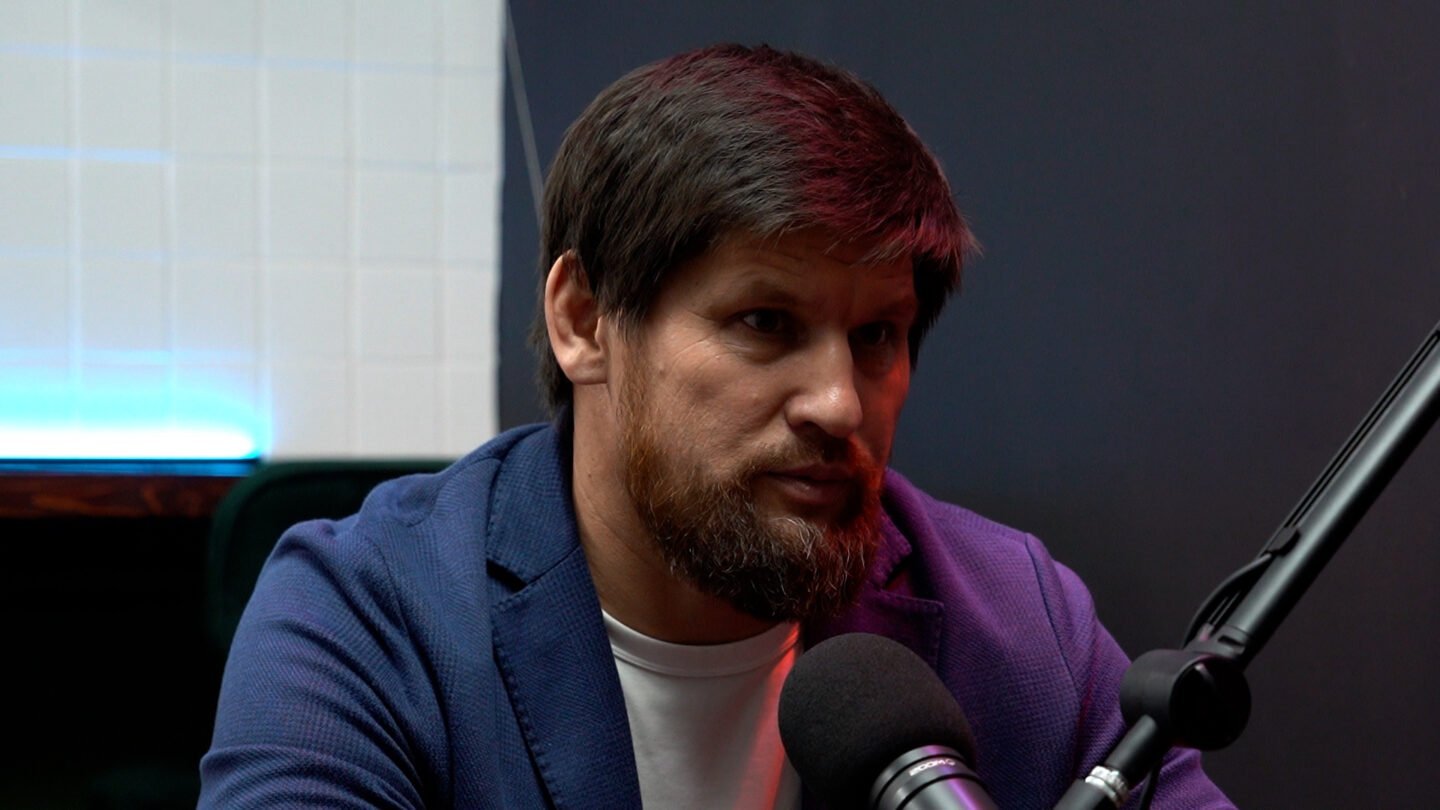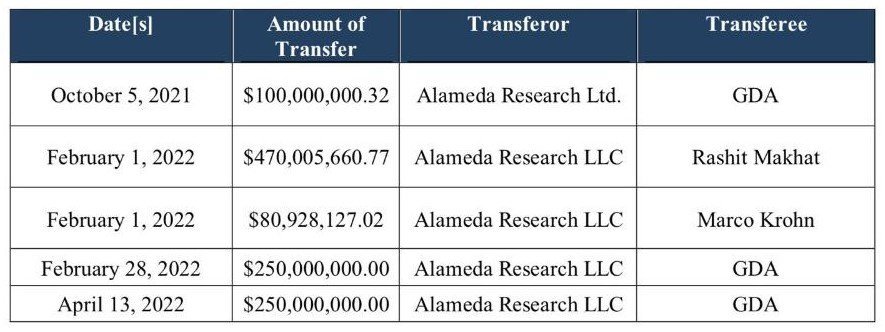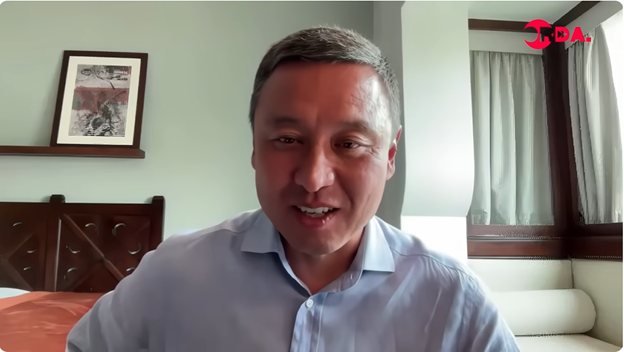How Kairat Satybaldyulu’s Friend Made Half a Billion Dollars on Stolen Bitcoin
 Photo: Orda.kz
Photo: Orda.kz
A $1.15 billion lawsuit has been filed against Genesis Digital Assets (GDA), one of the world’s leading mining firms. Ordinarily, this would have little to do with Kazakhstan — except that one of GDA’s co-founders is a friend of Kairat Satybaldyulu. Orda.kz explains how Kazakhstan became tied to the world’s largest cryptocurrency scandal.
Billionaire, Fraudster, Bankrupt
The lawsuit, filed on September 22 in a Delaware court by the FTX Recovery Trust, names Genesis Digital Assets as the defendant. The case concerns funds suspiciously diverted from the FTX crypto exchange.
To avoid drowning in names and business connections, let’s start with one: Samuel Bankman-Fried.

Samuel Bankman-Fried, better known as “Sam,” is the infamous founder and former CEO of cryptocurrency exchange FTX. He also controlled Alameda Research, a leading trading firm. At the height of its success in 2022, his net worth was estimated at $24 billion.
Today, Forbes values it at zero.
In November 2022, FTX collapsed after suspicions of fraud prompted a wave of withdrawals, wiping out $8 billion. Bankman-Fried declared both FTX and Alameda bankrupt, was arrested in the Bahamas, tried for large-scale fraud, and sentenced to 25 years in prison.
It seemed the story had ended. But the FTX Recovery Trust, charged with reclaiming assets, now claims that Genesis Digital Assets—a company co-founded by Kazakh investors—was part of the scheme. The trust alleges that Bankman-Fried forced Alameda to buy GDA shares at inflated prices using FTX clients’ money.
The lawsuit also claims that restrictions on mining in Kazakhstan, higher taxes, and poor forecasts made investments in GDA unprofitable. Yet more than half of the $1.15 billion funneled through FTX allegedly went directly to GDA’s founders. The fund is now demanding the return of these funds, citing fraudulent transfers.
So where does Kazakhstan come in? Through Rashit Makhat, a Kazakh businessman, former athlete, and IT entrepreneur who co-founded GDA.
In January 2024, The Wall Street Journal reported that nearly half a billion dollars that disappeared from FTX ended up with Makhat, described as a “burly jujitsu champion” from Kazakhstan.
Makhat has served on the boards of Kazakhstan Engineering, Kazakhaltyn, and Kcell, co-founded the IT company Powerry, and was vice president of the Kazakhstan Taekwondo Federation.
He is not a public figure, aside from a 2022 interview with Orda.kz. At that time, he was an independent director of Kcell, a co-founder of Genesis Digital Assets (holding just two percent, according to him), and the plaintiff in a case against journalist Makhambet Abzhan, whom he accused of extortion.

A name that cannot be avoided in connection with Makhat is Kairat Satybaldyulu. Makhat has acknowledged a friendship with Nazarbayev’s nephew, though he denied any commercial ties.
According to the FTX Recovery Trust, in February 2022 — shortly before FTX collapsed — Alameda Research transferred $470 million directly to Makhat.
Another $80 million went to his business partner, mathematician and crypto investor Marco Krohn. Between October 5, 2021, and April 13, 2022, Genesis Digital Assets itself received three direct transfers totaling $600 million — funds allegedly siphoned from FTX.

The plaintiff claims that the FTX collapse was aided by massive withdrawals into GDA, asserting that FTX customer deposits were diverted via Alameda to purchase GDA shares and related assets.
As a result, the trust alleges, FTX was stripped of liquidity and unable to meet obligations to clients and creditors.
Investments, Bitcoin, Flight
Rashit Makhat has emphasized that his company decided not to pursue mining operations in Kazakhstan. Today, it owns around 20 crypto farms across the US and Europe. Still, Genesis Digital Assets retained significant assets in Kazakhstan. Its key holding was the Sogrinsk CHP, which Makhat’s company acquired in 2018, modernized, and used to supply electricity to mining farms.
GDA also cultivated special ties with Kazakhstan. In 2022 — the same year FTX collapsed — the company pledged 300 million tenge to the Qazaqstan Halqyna Foundation as a show of responsibility and support for “the country in which it operates.”
Years earlier, in 2017, Sam Bankman-Fried himself visited Kazakhstan and met GDA’s co-founders.
It may have been then that he lobbied for certification of mining farms in Kazakhstan for 280 MW of capacity — the equivalent of powering four or five industrial cities such as Qaraganda.
Wall Street Journal reporters later noted that Bankman-Fried’s financial dealings with GDA looked suspiciously one-sided. Though he funneled more than a billion dollars into the company via Alameda Research, the details of his equity position remain opaque.
In hindsight, it was a shrewd move: GDA shares plummeted after Kazakhstan tightened tax rules on miners. By 2022, the number of crypto farms in the country had fallen sharply, and GDA’s investors fled west in search of safer opportunities—just as FTX itself collapsed.
CHP, Mining, and the Missing Billion
In 2023, Kazakh businessman Yermek Alimov — a former top manager at Kazakhstan Temir Joly and the Samruk-Kazyna Fund — filed a lawsuit against GDA in the UK High Court. He is demanding to know what happened to the revenue the company allegedly generated in Kazakhstan from electricity supplied to its mining operations.
Alimov claims that back in 2017, while serving as first deputy chairman of JSC Astanaenergoservis, he helped provide electricity for GDA’s mining farms.
At that time, the company was fully controlled by Uzbek investor Abdumalik Mirakhmedov, who had previously partnered with the founders of ERG Corporation — Patokh Chodiev, Alexander Mashkevich, and Alijan Ibragimov —and was even listed as an affiliate of Eurasian Bank as director of ENRC Marketing AG.
Mirakhmedov later transferred part of the business to Rashit Makhat and Andrey Kim.

“The sole owner of the project was Abdumalik Mirakhmedov, who assumed full control over the project’s corporate structure. Only in September 2020 did he agree to transfer shares to [Makhat and Kim], but without involving me. By that time, bitcoin was already being actively mined in Qaraganda, Petropavlovsk, and Oskemen,” said Yermek Alimov.
The entrepreneur claims that by 2020 he had been excluded from the project, his bitcoin payments stopped, and he was denied the promised stake in GDA. Meanwhile, the company’s ownership structure changed 17 times. According to Alimov, Rashit Makhat’s ties to Kairat Satybaldyulu were not superficial: he alleges that “people from Satybaldyulu’s inner circle” persuaded him to sponsor Genesis Digital Assets.
Alimov emphasizes that it was his assets that enabled Genesis Digital Assets to launch its crypto operations in Kazakhstan. He says he helped establish three mining sites in East Kazakhstan and the Qaraganda region.
But when the strain on the national power grid became evident, the government tightened restrictions.
We helped people who understood crypto mining come and set up their sites on an industrial scale in Kazakhstan. In regions with abundant energy, everything went smoothly, without incident. But in regions where there wasn’t enough energy even for local needs, the layering and construction of such sites led to disruptions, and both the population and small and medium-sized businesses began to suffer. This, in fact, became the trigger for the government—without fully understanding the reasons for the phenomenon — to simply ban this type of business, Alimov said in an interview with Orda.kz.
He believes miners could have continued to operate in power-rich regions such as Pavlodar.
Instead, GDA shifted its main production overseas while keeping all the profits earned in Kazakhstan.
The other Kazakh shareholders of GDA lacked the energy expertise needed at the time. As the saying goes, timing is everything. I came, contributed my assets and expertise, everything I had gained over 10–20 years. In this way, I added to the common pot and the overall project. In return, they promised me a 35% share of the Kazakhstan segment, or 17.5% of the entire project. Now it’s time to remind them of their promises, said Alimov.
Alimov claims that the $1.15 billion now being sought from GDA in the United States is the same amount Samuel Bankman-Fried paid for a 19.7% stake in the company.
He argues that the money belongs not only to American taxpayers but also to Kazakhstan, whose resources were used by Makhat, Kim, and Mirakhmedov’s company.
The American lawyers handling our case see a strong prospect of transferring this $1.15 billion to the US budget. And under US law, 15–30% of this amount will go to the initiators of the case — me and my American partner. That’s a significant sum. There’s another nuance: when a claim is in the state’s interest, the amount is tripled, meaning we’re talking about $3.4 billion, Alimov explained.
So why did Astana not attempt to recover this billion-dollar sum from GDA, given that its crypto farms consumed Kazakh electricity to mine Bitcoin? Why did Kazakhstan’s authorities not file a similar lawsuit in their own interests, as is now being considered in a Delaware court? And why, in this web of business dealings involving former billionaire Bankman-Fried, former athlete Rashit Makhat, and former KTZ executive Yermek Alimov, do so many threads lead back to Kazakhstan?
The questions are many, and the search for answers promises to be even more compelling. Orda.kz will continue to follow developments in the story of the collapsed cryptocurrency empire and Kazakhstan’s missing electricity.
Original Author: Nikita Drobny
Latest news
- Prosecutor General’s Office Announces Staff Rotation
- LRT Comes to Life in Astana
- Oil and Gas Companies Fined 50 Billion Tenge in Kazakhstan
- Moldova: Patriotic Bloc Head Calls for Protests Following PAS Victory
- Singer Rustem Zhugunussov Fined for Religious Discord
- Georgia: Saakashvili and Ex-security Chief Ordered to Pay 9 million Lari to State Budget
- Peskov: No “Magic Weapon” Can Change Battlefield Dynamics for Kyiv
- Smartphone Certification in Kazakhstan: Will ATS Mediafon KZ Become A Monopolist?
- Washington Doesn't Oppose Ukraine’s Strikes Deep into Russia, Envoy Kellogg Says
- How Kairat Satybaldyulu’s Friend Made Half a Billion Dollars on Stolen Bitcoin
- Pro-European PAS wins Moldova’s Parliamentary Elections
- Kosherbayev Rejects Claims of Kremlin Influence over Appointment
- Komil Allamjonov Appointed Special Adviser at George Washington University
- Kazakhstan's Ministry of Defense Introduces AI Support Bot
- Former Atyrau Oil Refinery Head Murat Dosmuratov Reportedly Passed Away in Atyrau
- Kazakhstan Introduces Temporary Ban on Non-Ferrous Metal Exports
- Toqayev Continues Personnel Changes
- Experts Discuss Why Yerzhan Ashikbayev Was Recalled as U.S. Ambassador
- Presidential Administration: Experts Weigh in On Recent Rotations
- Chief Prosecutor of Rudny Detained

